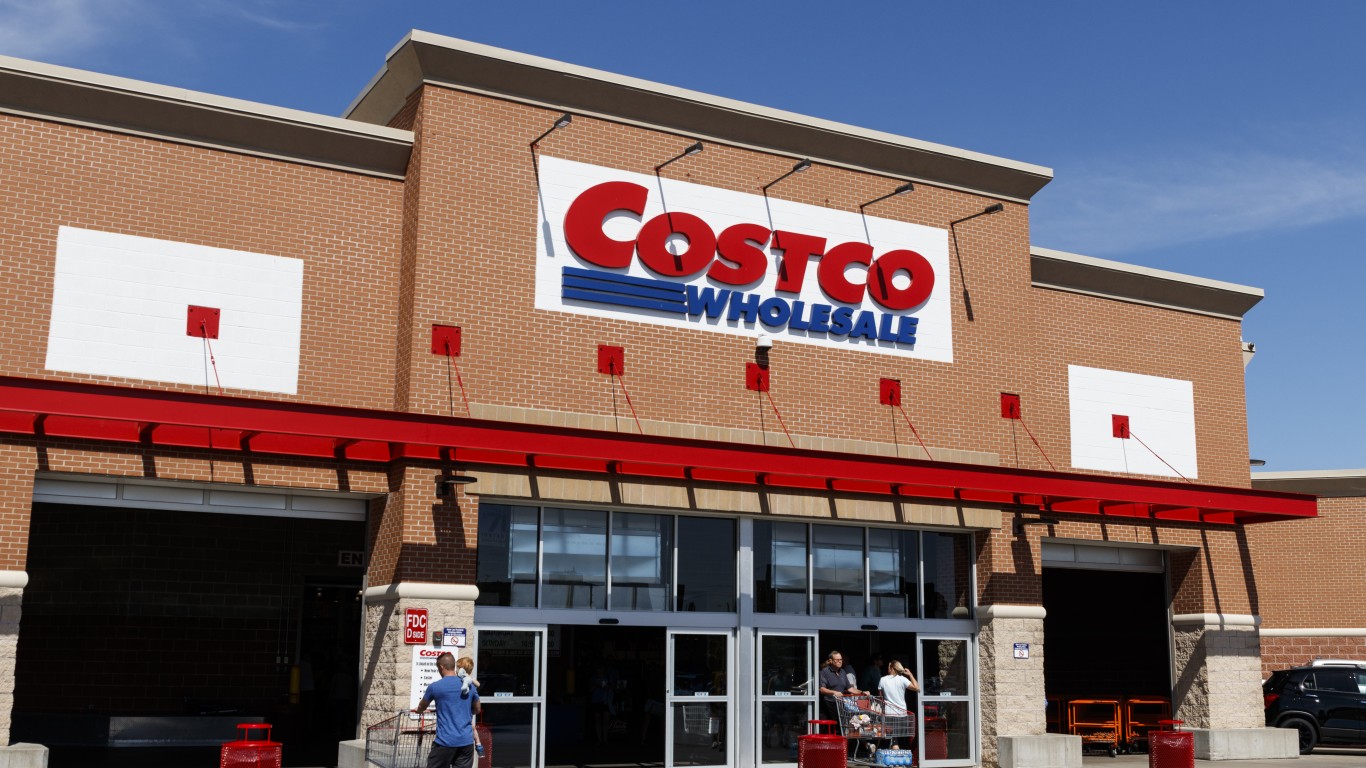

As each year comes to an end, Wall Street strategists, analysts and investors are forced to think about what is likely to occur in the markets. With the Dow Jones industrials and S&P 500 having managed massive gains, well above 20%, and with the tech-heavy Nasdaq up over 30% this year alone, it might be easy for most investors to believe that it would be hard to find any serious strong gains in 2020.
One of the industries that was seemingly left behind in 2019 was retail. Although standouts like Target Corp. (NYSE: TGT) and Lululemon Athletica Inc. (NASDAQ: LULU) saw their shares nearly double in this time, many retailers were absolutely crushed.
Americans are expected to have spent just over $1 trillion this holiday season, despite a shopping season that was six days shorter and anxiety over the U.S. economy. That projection marks a 3.8% year-over-year sales jump and the first-ever holiday season to reach the trillion-dollar level.
E-commerce sales were projected to account for 13.4% of all holiday sales, up by 1.1 percentage points year over year. Online sales were forecast to rise 13.2% year over year, compared with a 10.8% year-over-year increase in 2018. Total e-commerce sales are projected to have reached $135.35 billion.
The forecast comes from retail analytics firm eMarketer, which also projects an increase in sales at brick-and-mortar stores of 2.5% to a total of $872.25 billion.
Despite this incredible forecast and growing sales, most retailers are finding it ever harder to compete in a marketplace that is increasingly digital. This is especially true with the Amazon.com, Inc. (NASDAQ: AMZN) Death Star ready to obliterate any company that stands in its way. 24/7 Wall St. has put together a list of retailers that have suffered the most in 2019.
GameStop Corp. (NYSE: GME) has been hit hard by video game manufacturers as more platforms allow customers to purchase games online, seemingly obsoleting brick-and-mortar locations. Over the course of the year, the stock has dropped by about 57%. Shares were last seen trading at $5.90, in a 52-week range of $3.15 to $16.90. The consensus price target is just $4.55.
Michaels Companies Inc. (NASDAQ: MIK) operates a chain of arts and crafts stores. The company just appointed a former Walmart executive as its president and CEO to take up the reins in April 2020. After this year, some Walmart know-how might be just what Michaels needs. The stock has dropped about 55% year to date. Shares closed trading most recently at $8.00, in a 52-week range of $4.96 to $16.39. The consensus price target is $7.32.
Macy’s Inc. (NYSE: M) has been one of the worst performing components of the S&P 500 practically this entire year. Analysts are suggesting that this department store needs to decrease its footprint in terms of selling off some brick-and-mortar locations and get with the digital age. Over the course of the year, the stock has dropped about 44%. Shares traded last at $16.51 and have a 52-week range of $14.11 to $31.99. The consensus price target is $15.00.
Conn’s Inc. (NASDAQ: CONN) shares have dropped about 34% over the course of the year. Shares ended the week at $12.31. The 52-week range is $12.16 to $27.57, and the consensus price target is $22.50.
L Brands Inc. (NYSE: LB) has seen its comparable sales dropping over the course of the year, and this has led to a steadily declining share price. The stock retreated about 28% year to date. Shares closed trading at $18.21 on Friday, in a 52-week range of $15.80 to $29.69. The consensus price target is $19.88.
Kohl’s Corp. (NYSE: KSS) recently shifted its strategy to invest in the short term — specifically, this holiday season. Management believes that this can turn the company around and that this investment will support strategies to drive profitable growth over the long term. The stock is down about 23% year to date. Shares traded most recently at $50.94, in a 52-week range of $43.33 to $75.91. The consensus analyst target is $50.18.
Essential Tips for Investing: Sponsored
A financial advisor can help you understand the advantages and disadvantages of investment properties. Finding a qualified financial advisor doesn’t have to be hard. SmartAsset’s free tool matches you with up to three financial advisors who serve your area, and you can interview your advisor matches at no cost to decide which one is right for you. If you’re ready to find an advisor who can help you achieve your financial goals, get started now.
Investing in real estate can diversify your portfolio. But expanding your horizons may add additional costs. If you’re an investor looking to minimize expenses, consider checking out online brokerages. They often offer low investment fees, helping you maximize your profit.
Thank you for reading! Have some feedback for us?
Contact the 24/7 Wall St. editorial team.



